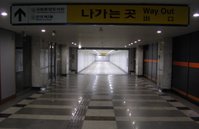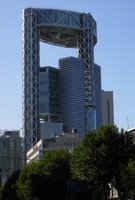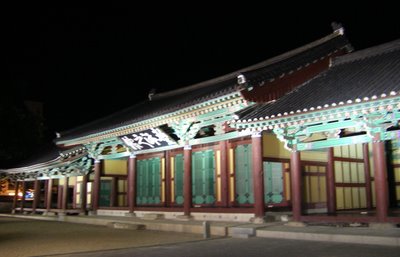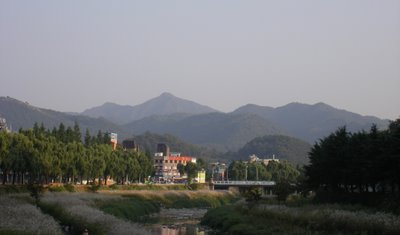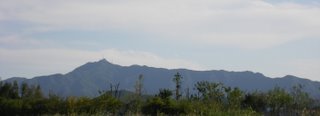At midnight on Dec. 31, hundreds of millions of pages of secret documents will be instantly declassified, including many F.B.I. cold war files on investigations of people suspected of being Communist sympathizers. After years of extensions sought by federal agencies, the end of 2006 means the government’s first automatic declassification of records. Secret documents 25 years old or older will lose their classified status without so much as the stroke of a pen, unless agencies have sought exemptions on the ground that the material remains secret. The National Security Agency, the eavesdropping and code-breaking agency, has released 35 million pages, including an extensive collection on the Gulf of Tonkin incident that led to the escalation of the Vietnam War. The agency plans a major release early next year on the Israeli attack on the Liberty, an American eavesdropping ship, in 1967.
Full Article (NY Times)
Thursday, December 21, 2006
Instant Declassification
Thursday, December 14, 2006
Sunday, December 10, 2006
Monday, December 4, 2006
Korean Government Warns Harsh Action Against Truckers
Their industrial action disrupted shipment at major ports hitting the export-driven economy. The hardest hit was Gwangyang Port in the southwest, which handled about 35 percent of its usual cargo volume yesterday afternoon. Other ports in Busan and Pyeongtaek were running at less than half their normal cargo capacity.
Over 1,600 cargo workers gathered in rallies in 43 areas across the country yesterday. The strike is expected to reach a turning point today as the National Assembly construction committee debates the new set of labor bills. Even nonmembers of the federation have threatened to join the strike if there is still no resolution on the bills. The bills, proposed by the minor Democratic Labor Party, have been pending for several months.
Due to violent protests in the Jeolla and Gyeongsang regions over the weekend, a total of 62 freight cars and 66 private automobiles were damaged, and 18 cars were set on fire, the police said.
The Korean Herald - 12/05/06
Thursday, November 23, 2006
Wednesday, November 15, 2006
Sunday, November 12, 2006
Monday, November 6, 2006
Military Times Demand Rumsfeld Be Fired
Army Times
Navy Times
Air Force Times
Marine Corps Times
DoD Response
Sunday, November 5, 2006
Thursday, November 2, 2006
Saddam Hussein Verdict
Sunday, October 8, 2006
Sunday, October 1, 2006
Since I Last Rapped At Ya:
Bob Bowman, retired Air Force officer and 9/11 Truth advocate, wins the democratic nomination in Florida's 15th congressional district.
9-16-06
William "Rock" Rochyby arrives in Korea.
Monday, September 11, 2006
Satyagraha: Non-Violent Resistance and the Search for Truth
Mahatma Gandhi speaks to 3000 Indians in Johannesburg, South Africa. Gandhi would later recognize the significance, stating; " The principle called Satyagraha came into being before that name was invented. Indeed when it was born, I myself could not say what it was."
This day was the conception of a powerful new idea.
Non-violent resistance would soon be employed to free 300 million Indians from British colonial rule and give hope to millions of repressed peoples around the world. Satyagraha would later be used by Dr. Martin Luther King Jr. to confront segregation in America and by Nelson Mandela in his struggle to end apartheid in South Africa.
In searching for the truth behind his own subjugation, Gandhi had found a way to use his suffering against his enemies. The process of loving one's enemy can be a difficult and profound exercise in understanding one's own true motivations. Through suffering and non-violent resistance a person may not find the truth they seek, but through war, one can only cloud the truth and forge hatred betwixt peoples and nations.
Further advances of non-violent resistance continue to change the policies and practices of governments everywhere, except in the United States. For the first time in American history, non-violent protests preempted a war. Unlike the Vietnam conflict which raged for nearly 6 years before peace movements gained traction, non-violent protests began months in advance of the war in Iraq. This resistance was met with armies of riot police and thousands of detentions and arrests. The war began as scheduled. Nothing was changed.
Has everyone forgotten that, throughout history, it has been popular movements, not leaders, that have been the catalyst for change? It was as though after the resistance to the Iraq war was squelched, people felt helpless and embarrassed. But, these feelings of ineptitude can be projected outwardly, through Satyagraha, to defeat violence. One's enemies can be made to look over-bearing and repressive if the suffering and subjugation become too great. Once that threshold is reached, the love for your enemy can be used to make him look boorish and uncouth.
As the "war on terror" turns 5 it might serve us well to also remember the 100th birthday of Satyagraha, the search for truth through non-violent resistance. Fear has always been the enemy of truth, but without fear, we are free to ask questions, even if the answers may not be to our liking. Fear of an idea (terror) has led us down the path of complacency and only by resisting that idea can we come to realize the truth; there is no war, only the fear of war.
Vinoba Bhave, one of Gandhi's successors said, " These days absence of war is regarded as peace. But peace really connotes absence of fear. There would be peace only when no part of the world is afraid of or exploited by any other part."
Sunday, September 10, 2006
Thursday, September 7, 2006
The GOP Don't Want Me
Tuesday, September 5, 2006
THE LO CRUX
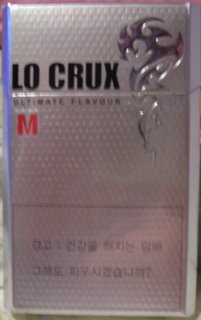 My Korean smoke of choice. The small description below the name says "Ultimate Flavour". Indeed. They also come in a "red" which I smoked for a while until I began to hate myself. But the "M" is just right. Smokes (tambe) are the same price everywhere. There is no deviation, and the price is W2500...about $2.50 a pack. It's the 2 for 5...the buy one get one... all the time! It's terrible to rejoice over the LOW LOW price of killing yourself slowly, but until I quit I'll continue to praise the rock bottom deals. As a side note, one can buy "American" cigarettes here although choice is limited. Marlboro, Parliament is the extent that I've seen but perhaps there are other brands available. Maybe Winston, I'm not sure.
My Korean smoke of choice. The small description below the name says "Ultimate Flavour". Indeed. They also come in a "red" which I smoked for a while until I began to hate myself. But the "M" is just right. Smokes (tambe) are the same price everywhere. There is no deviation, and the price is W2500...about $2.50 a pack. It's the 2 for 5...the buy one get one... all the time! It's terrible to rejoice over the LOW LOW price of killing yourself slowly, but until I quit I'll continue to praise the rock bottom deals. As a side note, one can buy "American" cigarettes here although choice is limited. Marlboro, Parliament is the extent that I've seen but perhaps there are other brands available. Maybe Winston, I'm not sure.
Sunday, September 3, 2006
Trash

 On my walk to E-mart yesterday i took the scenic route through some small alleys and side streets. I found a couple interesting bits to share. I think the first is several old computer keyboards that have been burned and melted. all the symbols were burned off the keys, but there are the telltale small keys in the middle and larger keys on the edges. The second is by far the scariest Halloween mask I have ever seen. It's your standard white person mask, but nonetheless creepy as hell. Of course I took it home.
On my walk to E-mart yesterday i took the scenic route through some small alleys and side streets. I found a couple interesting bits to share. I think the first is several old computer keyboards that have been burned and melted. all the symbols were burned off the keys, but there are the telltale small keys in the middle and larger keys on the edges. The second is by far the scariest Halloween mask I have ever seen. It's your standard white person mask, but nonetheless creepy as hell. Of course I took it home.
Saturday, September 2, 2006
The Evolution of Palestine



The first map is the original League of Nations British mandate after the Armistice of 1920 following the first world war. The second map is a proposed United Nations French mandate following the second word war. The third map is essentially how Israel and the Palestinian Territories exist today, after a final mandate in 1949. The Gaza Strip was originally controlled by Egypt, and the West bank controlled by (Trans)Jordan. Today, Israel still occupies much of the West Bank area after its pullout from Gaza more than a year ago. The city of Jerusalem is divided much like Berlin prior to the end of the Cold War. A portion of the city belongs to Palestine but a majority is under Israeli control and Palestinians are prevented from traveling to other parts of the city.
FBI: More Data Mining
The program, called Project Strike Back, was a joint project of the department and the FBI and was created 10 days after the terrorist attacks, according to the documents from the department's Office of the Inspector General (OIG).
The documents were released to USA TODAY through Freedom of Information Act requests. They were also obtained by a Medill School of Journalism reporter working with the Associated Press.
Full Article HereWednesday, August 30, 2006
Rumsfeld: "The New Fascism"
 This is from an article in the LATimes online posted August 30, 2006.
This is from an article in the LATimes online posted August 30, 2006.By Julian E. Barnes - Los Angeles Times
SALT LAKE CITY — Defense Secretary Donald Rumsfeld compared critics of the Bush administration to those who sought to appease the Nazis before World War II, warning Tuesday that the United States is confronting "a new type of fascism."
Rumsfeld, speaking before the American Legion convention, delivered some of his most explicit and extended attacks yet on the administration's critics, provoking criticism from furious Democrats who accused him of "campaigning on fear."
By comparing U.S. foreign policy with World War II and the Cold War, Rumsfeld sought to portray skeptics of Bush's foreign policy as being on the wrong side of history. Rumsfeld again ridiculed U.S. officials who, before World War II, wished to negotiate with Adolf Hitler.
"I recount that history because, once again, we face similar challenges in efforts to confront the rising threat of a new type of fascism," Rumsfeld said. "But some seem not to have learned history's lessons."
He continued: "Can we truly afford to believe that, somehow or some way, vicious extremists could be appeased?"
His use of the word "appease" was particularly notable, clearly tying administration critics to the failed efforts of the pre-Churchill British government to mollify Hitler.
Rumsfeld has become one of the Bush administration's most divisive figures, and demands for his resignation have become a litmus test in congressional races around the country.
Nevertheless, Rumsfeld aggressively defended the war and his leadership of it in speeches to the American Legion on Tuesday, the Veterans of Foreign Wars a day earlier and in other meetings with service members this week.
In each speech, Rumsfeld has acknowledged the reality of debate in a free society. But he has attacked the news media, charging that reports have been manipulated by Iraqi insurgents or al-Qaida terrorists. He has suggested that negative news stories and criticism of the war sap the nation's will to fight in Iraq.
"The struggle we are in is too important — the consequences too severe — to have the luxury of returning to the 'blame America first' mentality," Rumsfeld told the American Legion. "Can we truly afford to return to the destructive view that America — not the enemy — is the real source of the world's troubles?"
Tuesday, August 22, 2006
Long Weekend
 The last 4 days have been "summer vacation", so I've done alot of strolling and picture-taking. I considered going to Seoul, but there was rain in much of the forecast. So, instead I decided to do a couple touristy things in Jeonju. One of those things being a visit to Gaeksa. It's the birthplace of Yi Seong-gye, founder of the Joseon Dynasty, (1390-1910), the last dynasty to rule before Japanese domination.
The last 4 days have been "summer vacation", so I've done alot of strolling and picture-taking. I considered going to Seoul, but there was rain in much of the forecast. So, instead I decided to do a couple touristy things in Jeonju. One of those things being a visit to Gaeksa. It's the birthplace of Yi Seong-gye, founder of the Joseon Dynasty, (1390-1910), the last dynasty to rule before Japanese domination.


Directly next to Gaeksa is the "Street for Strolling". That's really the name. A bit like a strip mall, no cars allowed (supposedly, but there was some repairs being done). Regardless, a quiet place for strolling and people watching.

The other tourist trap was shopping, luckily it was of the "window" variety. The only thing I bought was a "Goldcrest Wilma" Cypress, a miniature Cypress tree, for about 3 bucks. I read it doesn't usually get much bigger than a large bush and can be used for bonsai. But I think i'll let it grow naturally, that is, if i can get it to grow at all.

















